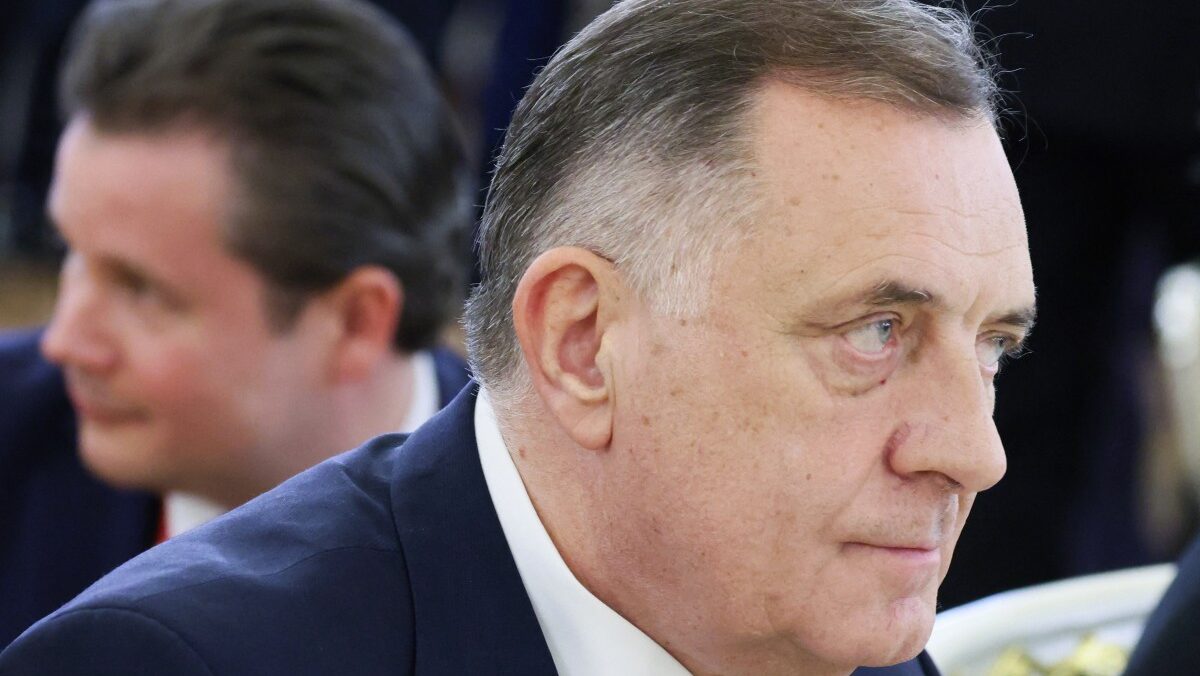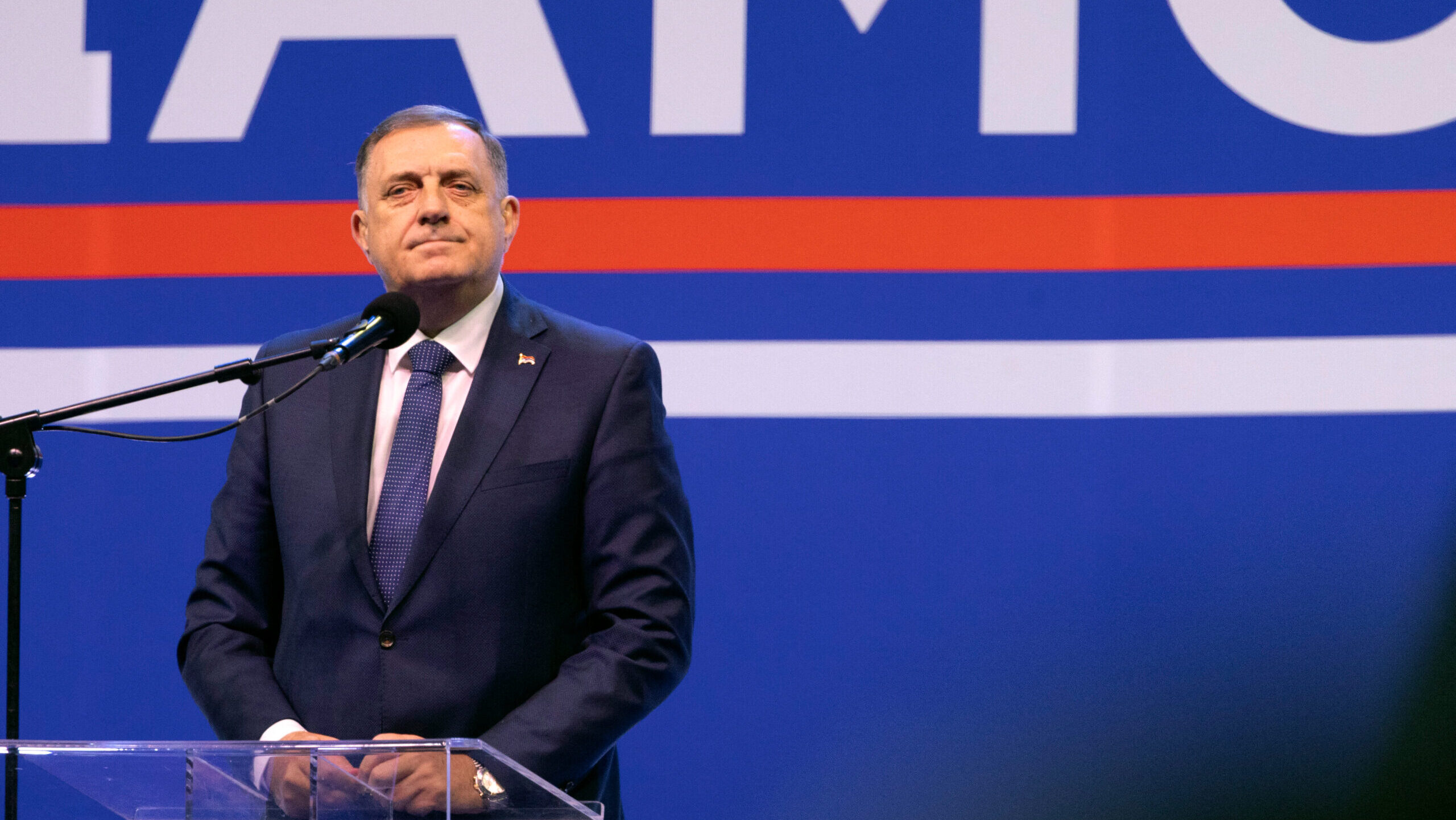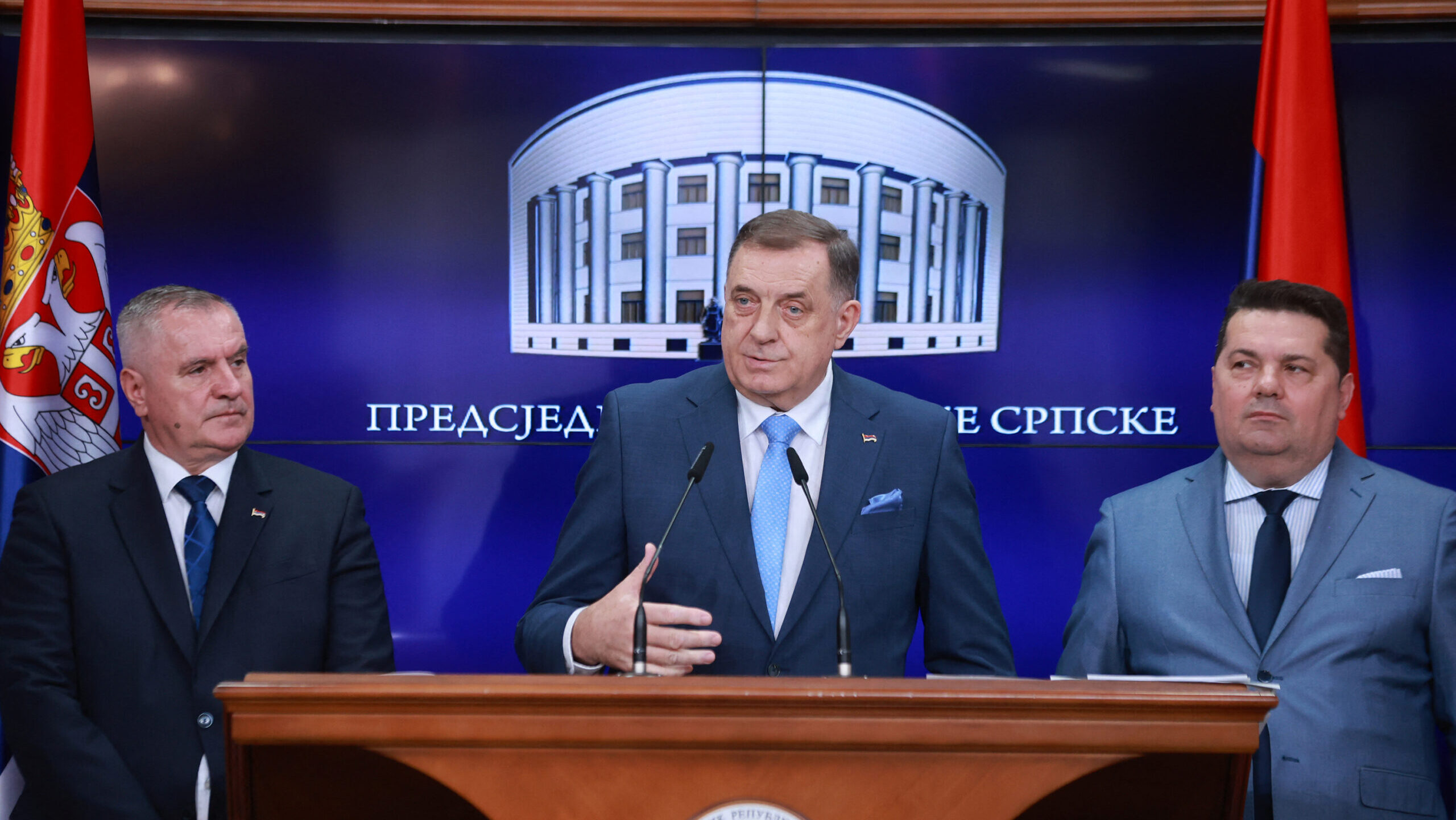
Dodik Ally Wins Republika Srpska Election
The extraordinary election had to be held after a court stripped former president Milorad Dodik of his position.

The extraordinary election had to be held after a court stripped former president Milorad Dodik of his position.

The Bosnian Minister of Foreign Trade and Economic Relations taunted his Balkan panjandrum with a relic from Hitler’s Germany.

With the Bosnian legal system continuing their fight against Milorad Dodik, his support in Republika Srpska is not weakening.

Around 6,000 drivers stopped goods deliveries, demanding changes to travel restrictions and better support for their industry.

President Milorad Dodik, whose removal by Bosnian authorities remains contested, does not view the Central Election Commission as legitimate and has vowed to resist central institutions and said he will stage referendums.

Lawmakers in Republika Srpska approved an October ballot rejecting rulings that stripped their president of office.

Republika Srpska faces early elections—but Dodik insists only referendums will decide its future.

“Surrender is not an option,” Dodik declared as commenting on being formally stripped of the presidency of the Republika Srpska.

Police raids across Europe net five suspects in €10 million Balkan route operation.

Milorad Dodik, president of the Serb-majority Republika Srpska, has been removed from office after a court upheld his conviction for defying Bosnia’s international peace envoy.